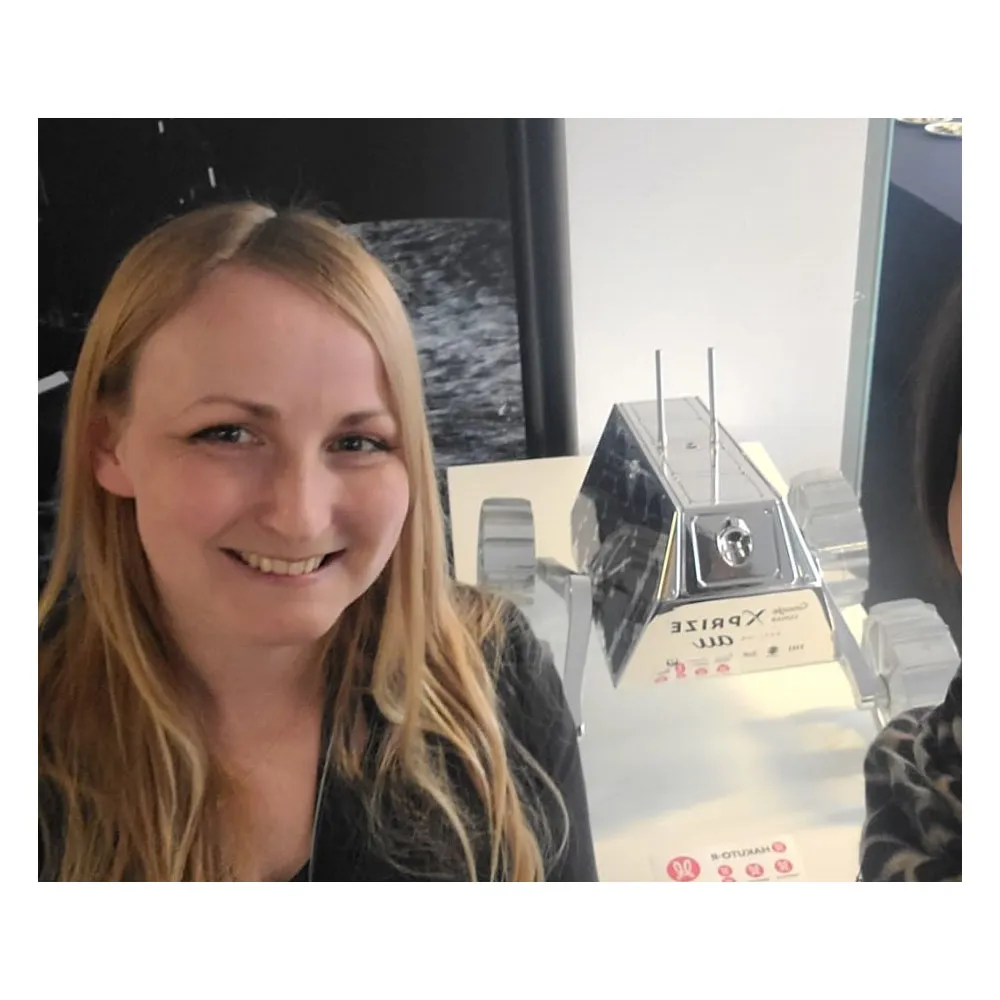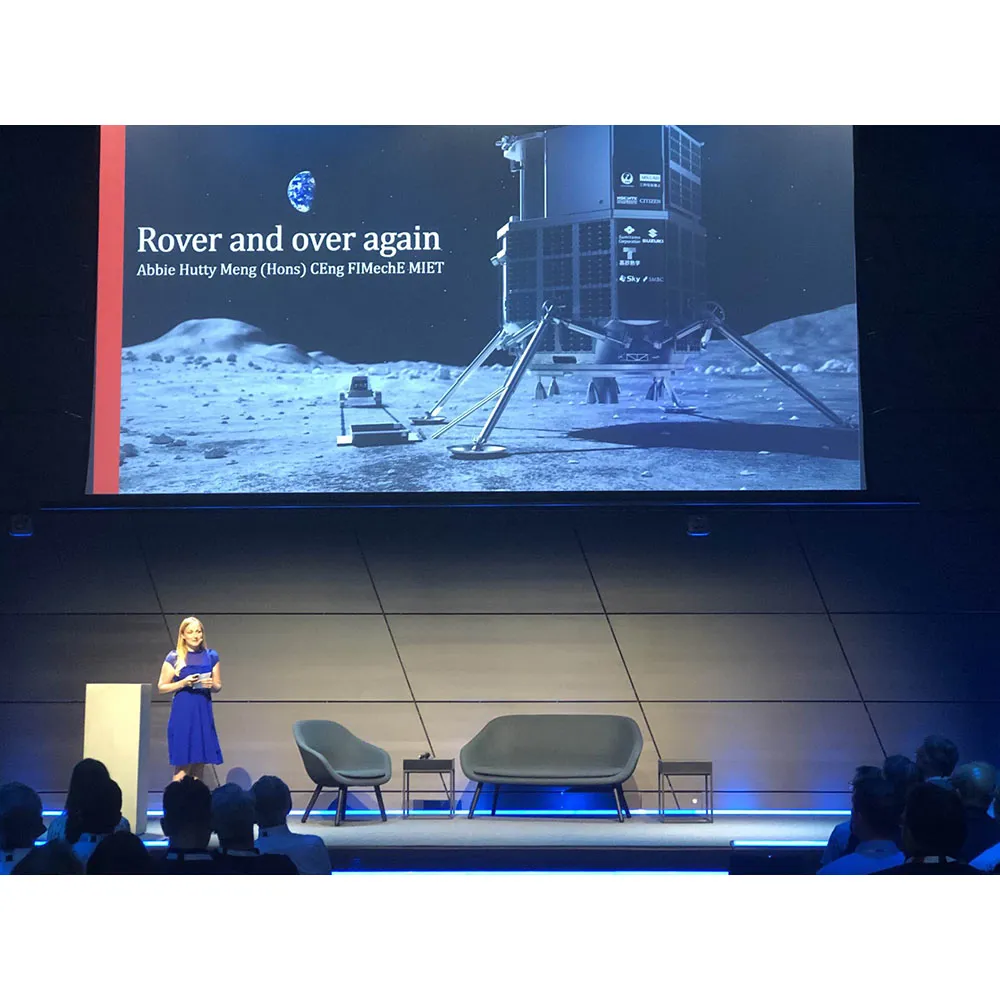Abbie Hutty
Job Title: Lead Systems Engineer, Exploration Rover
Company you work for: ispace EU SA
When you were a child, what did you want to be when you grew up?
I didn’t know – I just knew I wanted to make things! At one point I remember saying I wanted to own a teddy bear factory…
What is the biggest impact your work will or could have in the future?
I worked on a Mars Rover mission which aimed to find life on Mars to finally attempt to answer one of humanity’s biggest questions – are we alone in the Universe? I’m now working on Rover missions to the moon, which are part of a group of missions aiming to explore the moon, find resources there which could be used to benefit society here on Earth, and create the infrastructure for future human missions to the moon, including setting up a permanent human settlement on the moon’s surface.
What excites you most about STEM?
STEM is how we solve the world’s challenges and make the world a better place. We get to use our imagination and creativity to come up with solutions that no-one has thought of before, as well as constantly improving the way things work.
What or who inspired you to do your job, and what do you love most about it?
I was inspired when I saw Colin Pillinger – a British Scientist, on the news, talking about a British mission to send a probe to Mars. He said that British engineers were designing and building this mission to Mars, and I thought – “wow, if engineers get to design missions to other planets, then engineering sounds like a pretty cool job!” I was amazed that you could work on such incredible missions in the UK. My teachers also encouraged me towards engineering as it combined my love of art, technology, and other creative subjects, with maths, science, and problem solving, in a way that would suit my strengths.
How might your role work in space, sport or on the Moon in the future?
The Rover that my team is working on now is meant to be working on the moon in just a few years, exploring the surface, maybe collecting samples, performing science, sending back data, and helping us to develop future missions. It will help us gain a deeper understanding of the conditions there, so that we might be able to better inform our planning on where to send future missions and learn about the effects of the lunar environment on our robotic systems and components.



What do you think the future for humans in space looks like?
I’m very excited to see the next generation of astronauts on the moon, especially as good friends and old colleagues of mine are now among the astronauts in training! I think future missions will rely more heavily on a robotic presence alongside the humans to support their activities, perform a lot of the difficult and risky work that needs to be done, and to process materials, as well as to manufacture and supply the space bases with all the resources they need to operate and thrive.
Would you like to play football on the Moon one day and why?
I would love to go to space as a tourist, and to see the Earth from that unique vantage point, and it would be amazing to experience microgravity. Standing on the moon would be an incredible experience - leaving footprints where maybe no-one has gone before, and that could stay there for millions of years. I think I would be so in awe just at the idea of being there and soaking up the view and the experience that football would be the last thing on my mind!
How does the work you do now link to our Moon United campaign to play football in the future?
My day-to-day job is all about designing robots that will help inform and build whatever future moon bases and infrastructure are built in the future. At the moment that is mostly for scientific and exploration purposes, but the next steps will be to develop the infrastructure to support a human presence on the moon – and that means considering their comfort, happiness, and general wellbeing as well as just survival. Football could well be a way to keep astronauts healthy and happy.
What were your favourite subjects at school and why?
Design Technology was always my favourite subject, followed by Art. I just loved creating things, especially if I was able to design something to fulfil a purpose or use my creativity to neatly solve a problem. That’s exactly what engineering is, so this is the perfect job for me!
What advice would you give to a young person considering a career in STEM?
Go for it! There aren’t enough engineers being trained to fill the many the roles available in our field. We need more people to come into technical fields to be able to solve all the challenges and problems facing humanity, and to help make the world (and space as well!) a better place for everybody.
